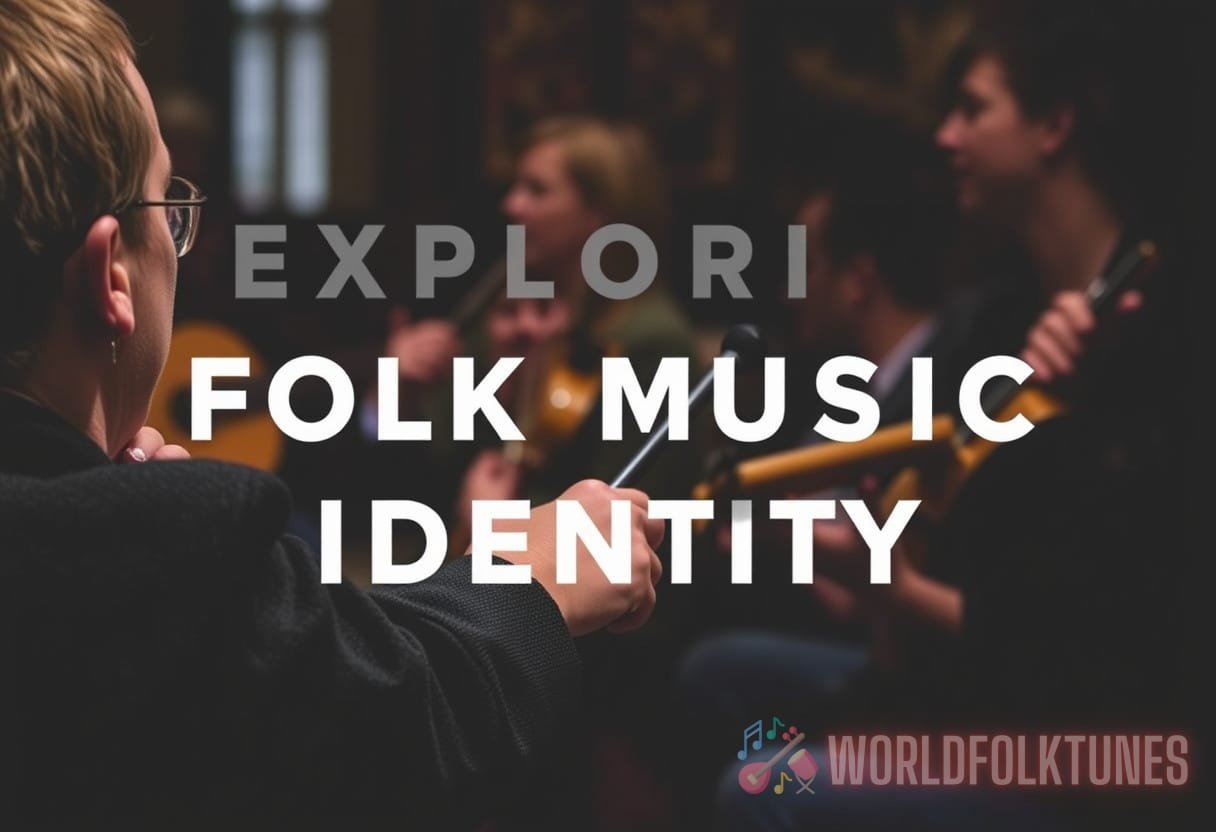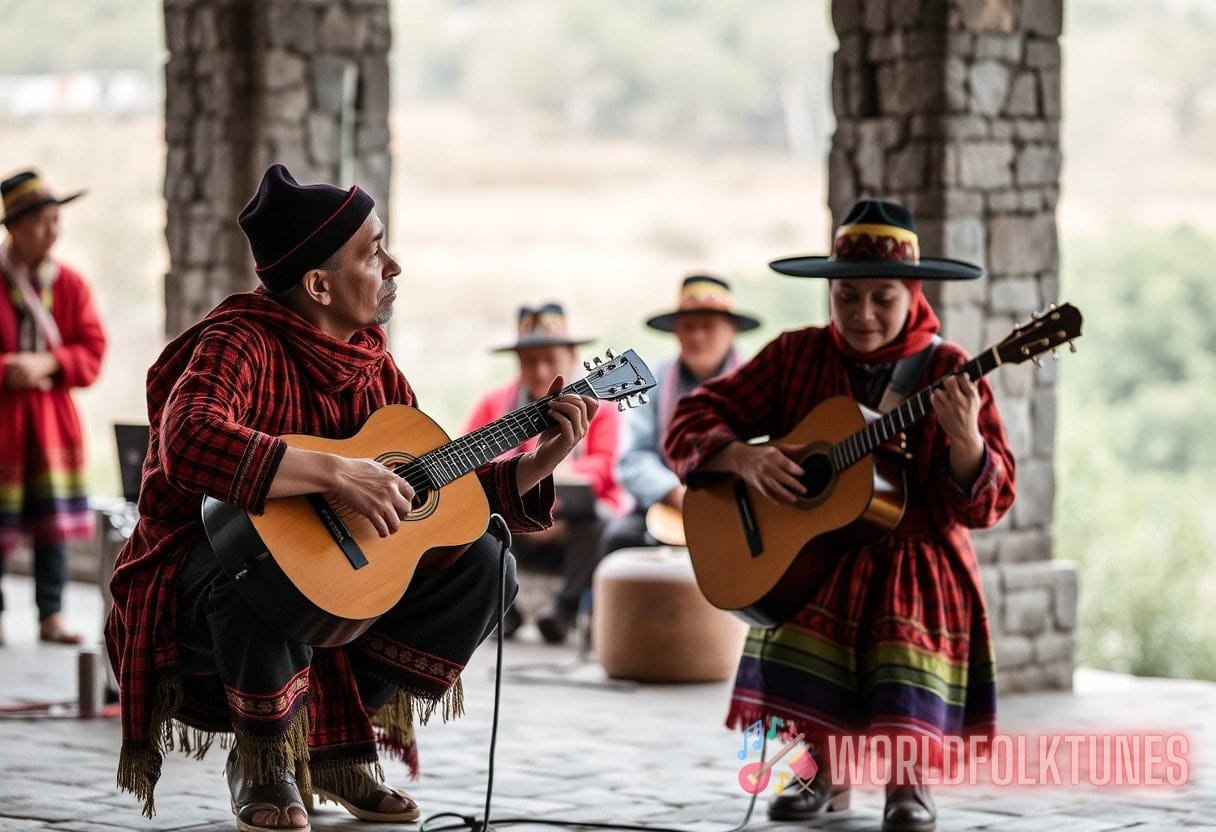Resonance of Roots: Interpreting Folk Music’s Role in Shaping Cultural Narratives and Identity
Folk music spans centuries, acting as a vibrant tapestry of cultural history, tradition, and identity. In every corner of the world, folk music is more than mere entertainment; it is a powerful medium through which personal and collective identities are expressed, preserved, and transformed. The intricate interplay between folk music and cultural narratives reveals profound truths about the societies that create and consume it.
The Definition and Essence of Folk Music
To understand the significance of folk music in shaping cultural narratives and identity, we must first define what folk music entails. Folk music is typically characterized by its oral transmission, grassroots origins, and communal function. It often encompasses the following features:
- Community-Based: Folk music is usually created and performed within specific communities and passed down through generations.
- Reflective of Everyday Life: It often addresses the lived experiences, struggles, joys, and traditions of the people.
- Instrumentation and Style: Typically utilizes traditional instruments, with styles varying greatly across different cultures.
- Variability: Folk music evolves, allowing local influences and social changes to shape the music over time while preserving core elements.
Due to its communal nature, folk music serves as a repository of historical narratives, functioning as a conduit for the values, customs, and beliefs inherent in a culture.
The Role of Folk Music in Cultural Identity
Folk music plays a crucial role in cultural identity construction. The relationship between folk music and identity can be categorized into several dimensions:
- Historical Narration: Folk songs often tell stories of historical events, serving as oral histories to educate and inform future generations.
- Emotional Resonance: The themes found in folk music evoke emotions, allowing individuals to connect with their cultural heritage on a deeper level.
- Social Cohesion: Participating in folk music strengthens community bonds, creating a shared sense of belonging and identity among individuals.
- Resistance and Change: Folk music has been a tool for expressing dissent and advocating change, providing a voice to marginalized communities.
These dimensions highlight that folk music identity is not a static concept. Rather, it adapts to the evolving cultural landscapes of societies, echoing the voices of contemporary struggles while remaining rooted in tradition.
Case Studies in Folk Music and Cultural Identity
To better illustrate the ways in which folk music shapes cultural narratives and identity, we can explore several prominent case studies from various regions across the globe:
1. American Folk Music and the Civil Rights Movement
The United States boasts a rich tradition of folk music, which has served as a critical medium for conveying social and political issues. During the Civil Rights Movement of the 1960s, folk music emerged as a powerful tool for advocacy and activism. Artists like Bob Dylan and Joan Baez employed folk elements to raise awareness about racial injustice and civil rights.
The song “We Shall Overcome,” originally rooted in African American folk traditions, became an anthem for the Civil Rights Movement, symbolizing hope and unity. In this context, folk music identity transcended mere entertainment; it became a rallying point for change, illustrating how cultural narratives can reshape and galvanize identities.
2. The Role of Quechua Music in Indigenous Identity
In Peru, the traditional music of the Quechua people offers another salient example of the relationship between folk music identity and cultural narratives. Quechua music not only reflects the struggles and triumphs of the indigenous communities but also serves as a means of preserving language and traditions in a rapidly modernizing world.
In recent decades, Quechua musicians have sought to reclaim their identity by incorporating contemporary elements into traditional music styles. This fusion revitalizes folk music identity while reinforcing cultural pride. Festivals like Inti Raymi and events featuring live performances allow these communities to celebrate their identity and share their cultural heritage with broader audiences.
3. Irish Folk Music and the Diaspora
Irish folk music has had a profound influence on cultural identity among the Irish diaspora, particularly in the United States. Songs such as “Danny Boy” and “The Wild Rover” evoke nostalgia and longing for a homeland, serving as a poignant reminder of cultural roots.

Irish folk music gatherings, known as seisiúns, allow members of the diaspora to connect and celebrate their heritage, reinforcing cultural narratives that transcend geographical boundaries. This communal practice fosters a sense of identity for those who may feel disconnected from their ancestral homeland.
The Influence of Technology on Folk Music Identity
Modern technology has profoundly influenced the landscape of folk music, shaping cultural narratives and identities in new and exciting ways. While traditional folk music is often characterized by local performance styles and oral transmission, digital platforms have opened up new channels for expression and dissemination.
- Access and Sharing: Digital music platforms allow artists from remote communities to reach broader audiences, preserving and promoting folk music identity more widely than ever.
- Collaboration: Online platforms facilitate collaboration between musicians from different backgrounds, leading to unique genre-blending that enriches folk traditions.
- Preservation: Digital archives and social media serve as repositories for folk songs, ensuring that they are not lost to future generations.
The integration of technology into folk music has also given rise to contemporary movements, such as the Americana genre, which amalgamates traditional folk elements with modern influences. This evolution continues to highlight the dynamic nature of folk music identity and its capacity for transformation.
Cultural Preservation versus Commercialization
The intersection of folk music identity and cultural narratives raises particularly poignant questions about preservation versus commercialization. As folk music permeates global culture, the risk of commodification and loss of authenticity arises. The challenge revolves around striking a balance between sharing folk traditions with a broader audience and retaining the integrity of the music.
Examples include:
- Festival commercialization: Cultural festivals designed to showcase folk music often face criticism for prioritizing profit over cultural enrichment.
- Modern adaptations: While some artists embrace the blending of folk music with contemporary styles, others argue that certain hybrid styles dilute the original cultural significance.
- Authenticity debates: Critics often debate what qualifies as “authentic” folk music, exploring the tension between tradition and innovation.
These complexities underscore the need for critical engagement with folk music and its role in contemporary culture, prompting a nuanced discourse on identity construction and representation.
The Future of Folk Music Identity
Looking forward, folk music will undoubtedly continue to be a vital medium for cultural expression and identity. The ongoing evolution of folk music identity, toward which numerous factors contribute, creates a fluid landscape where new narratives emerge. Populations are increasingly recognizing the importance of cultivating their cultural heritage, fostering connections between the past, present, and future.
Potential trends include:
- Interdisciplinary collaboration: Integration of folk music with literary arts, visual culture, and performance enhances cultural narratives.
- Grassroots movements: Local community-based initiatives will rise, emphasizing the importance of preserving traditional folk practices.
- Environmental themes: As climate change continues to be a pressing issue, folk music may increasingly address environmental narratives.
The dynamic interplay between folk music and cultural narratives showcases both the agency of communities to articulate their identities and broader societal influences that shape these expressions. As generations continue to engage with folk music, we can anticipate increasingly rich narratives reflecting diverse experiences and aspirations.
Conclusion: The Resonance of Folk Music
In summary, the examination of folk music identity reveals its pivotal role in shaping cultural narratives. Through multifaceted interactions encompassing historical recounting, emotional connections, and community cohesion, folk music serves as a living testament to the identities of people worldwide. The continued evolution of folk music in the face of modernization reinforces its status not just as an art form but as a profound means of cultural dialogue.
Exploring these themes can deepen our understanding of the role that folk music plays in informing who we are as individuals and communities. The final reflection on folk music identity ultimately leads to a recognition of its enduring resonance in shaping the narratives of societies as they navigate the complexities of cultural expression.
For further reading on this topic, consider exploring historical aspects of folk music and its influence on contemporary cultural movements. Additionally, you can look into modern trends in folk music that highlight the ongoing evolution of this essential art form.



